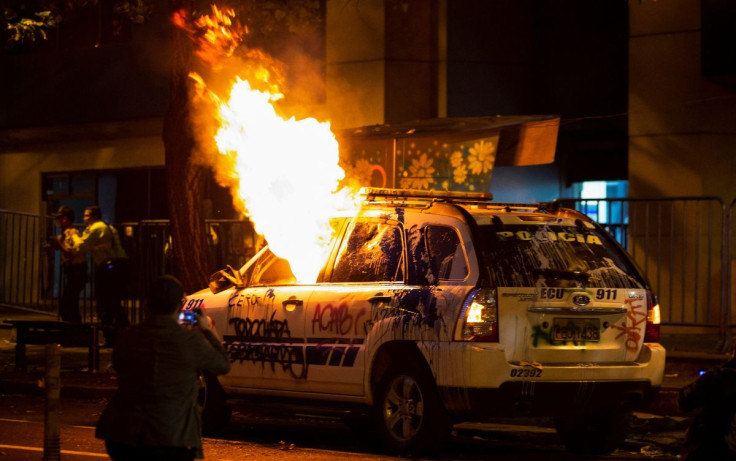Powerful Conaie On A Collision Course With Ecuador Government

Indigenous groups in mineral-rich Ecuador are known for their bargaining power. When they act, the government takes note of it because their powerful body -- Confederation of Indigenous Nationalities of Ecuador (Conaie) -- is credited with toppling three presidents between 1997 and 2005.
In 2019, protests by Conaie forced the then President, Lenin Moreno, to give up plans to eliminate fuel subsidies. Last October, current President Guillerme Lasso froze prices after several people, including police, were injured in clashes during the protests by the Conaie.
Now, the indigenous body, representing over 1 million of Ecuador's 17.7 million inhabitants, is seeking the same in its new campaign against the economic policies of the government.
But this time the conservative government of President Lasso is in no mood to listen. On 14 June, the police picked up Conaie boss Leonidas Iza after the group set up more than 20 roadblocks to cut off access to the capital Quito on 13 June.
We do not know where he is and what crime he is accused of, Iza's lawyer Lenin Sarzosa told journalists in Quito. The Conaie confirmed Iza's arrest, and termed it as arbitrary and illegal.
The police tweeted that Iza was held in Pastocalle, the flash point of ongoing protests which is about 20 kilometers south of Quito, on suspicion of unspecified crimes.
Since 2020, fuel prices have risen sharply in Ecuador. Prices of diesel almost doubled from $1 to $1.90 per gallon (about 3.78 liters) and gasoline prices rose from $1.75 to $2.55. The Conaie wants diesel to be sold for $1.50 per gallon and gasoline for $2.10.
Exacerbated by the pandemic, Ecuador is grappling with rising levels of inflation, unemployment, and poverty. Despite a stern warning from the government, Conaie members used piles of burning tyres, trees, and mounds of earth to prevent access to the capital from 11 of Ecuador's 24 provinces. The blockade forced the government to maintain a close vigil on fuel depots and other strategic locations.
The protesters are also seeking price controls on agricultural products, a moratorium on small farmers' bank debts and limiting mining expansion in the nation.
The Conaie has accused President Lasso of neglecting the economic wellbeing of indigenous communities while negotiating an aid package with the International Monetary Fund (IMF) during the height of the pandemic when bodies were left lying in the streets of the country.
The financial deal with the IMF is due to come to an end later this year. Lasso, a former banker, is seeking private investment to boost the economy after last year's recession which drained the government's exchequer. To diversify the economy, the president is banking on abundant mineral reserves in Ecuador. Slowing down their development, major mining projects in Ecuador are encountering opposition from local communities.
There are 14 indigenous-dominated provinces in Ecuador, many of them rich in oil and mineral deposits, including copper, gold and silver due to the proximity of the Andes mountain range. One of them, the Ecuadoran Amazon, is home to the vast majority of the country's crude oil reserves.
In February this year, Ecuador came out with a precedent-setting law that demands mining and extractive companies to obtain free, prior and informed consent (FPIC) from indigenous groups, if mining activity affects any of their lands.
As the world has started the green transition, local inhabitants in nations that are home to green minerals like lithium, copper, cobalt and nickel - critical components for electric vehicles (EVs) -- are heading for further rancour, confrontation and litigation.
Mineral-rich Ecuador will start four new mines by 2025 and the Cascabel project in Northern Ecuador, one of the world's largest copper discoveries in the last decade, will become operational by 2028. Cascabel will become the sixth-largest copper mine in the world after production starts.
But the unmindful extraction is seen by indigenous groups as a symbol of the ills of development.
























